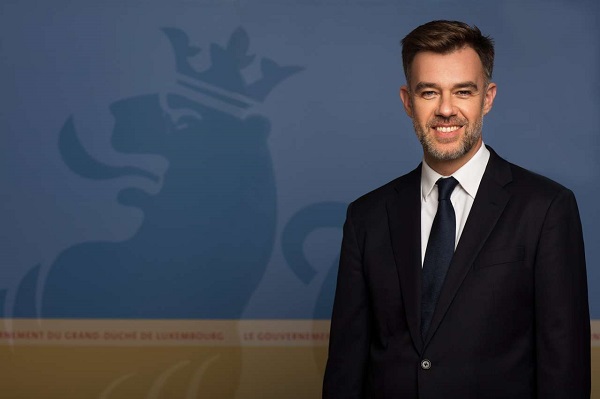 Franz Fayot, Luxembourg's Minister of the Economy;
Credit: SIP / Yves Kortum
Franz Fayot, Luxembourg's Minister of the Economy;
Credit: SIP / Yves Kortum
Luxembourg's Minister of the Economy, Franz Fayot, recently detailed the missions of Luxembourg Strategy, which was set up as a directorate of the Ministry of the Economy to take over from the Rifkin process.
In charge of strategic foresight, Luxembourg Strategy's mission is to produce prospective studies for economic strategy, in particular through the participatory development of transition scenarios for the Luxembourg economy by 2050. Responsible for participatory strategic foresight oriented towards the long-term future of the national economy as a whole, the Luxembourg Strategy department will deepen and extend the collaborative approach initiated in 2016 through the Rifkin process.
In its meeting of 25 February 2022, the Government Council approved Luxembourg Strategy's mission statement, centered around strategic foresight and physical quantification exercises, with the aim of considering and anticipating new economic prospects for the country. Added to this is the integrated modelling component, provided by STATEC, the national statistical institute of Luxembourg. On the one hand, an interministerial committee has been created to support the work of Luxembourg Strategy and coordinate the monitoring of megatrends and the design of long-term strategic scenarios. On the other hand, a technical working group will bring together the actors concerned to design scenarios for future economic development.
As an extension of the Rifkin study of the "third industrial revolution", Luxembourg Strategy is thus designed to contribute to the consistency of the sectoral strategies of the Ministry of the Economy with each other as well as with other strategic work impacting the transformation of the economy of the countries, towards greater competitiveness and resilience.
The work of Luxembourg Strategy covers the following areas:
- Monitoring the evolution of megatrends influencing the Luxembourg economy;
- Strengthening the coherence of strategies interacting with megatrends and the economy;
- Deployment of a participatory strategic foresight;
- Animation of the strategic debate with the various national entities involved and the general public, taking into account the plurality of interests.
Economy Minister Franz Fayot said: "We are currently living in a conflictual and polarized world where crises follow one another. It is therefore essential to take into account forward-looking studies and the development of various megatrends in order to understand the future of our economy and make informed decisions. The work of Luxembourg Strategy is part of this desire".









